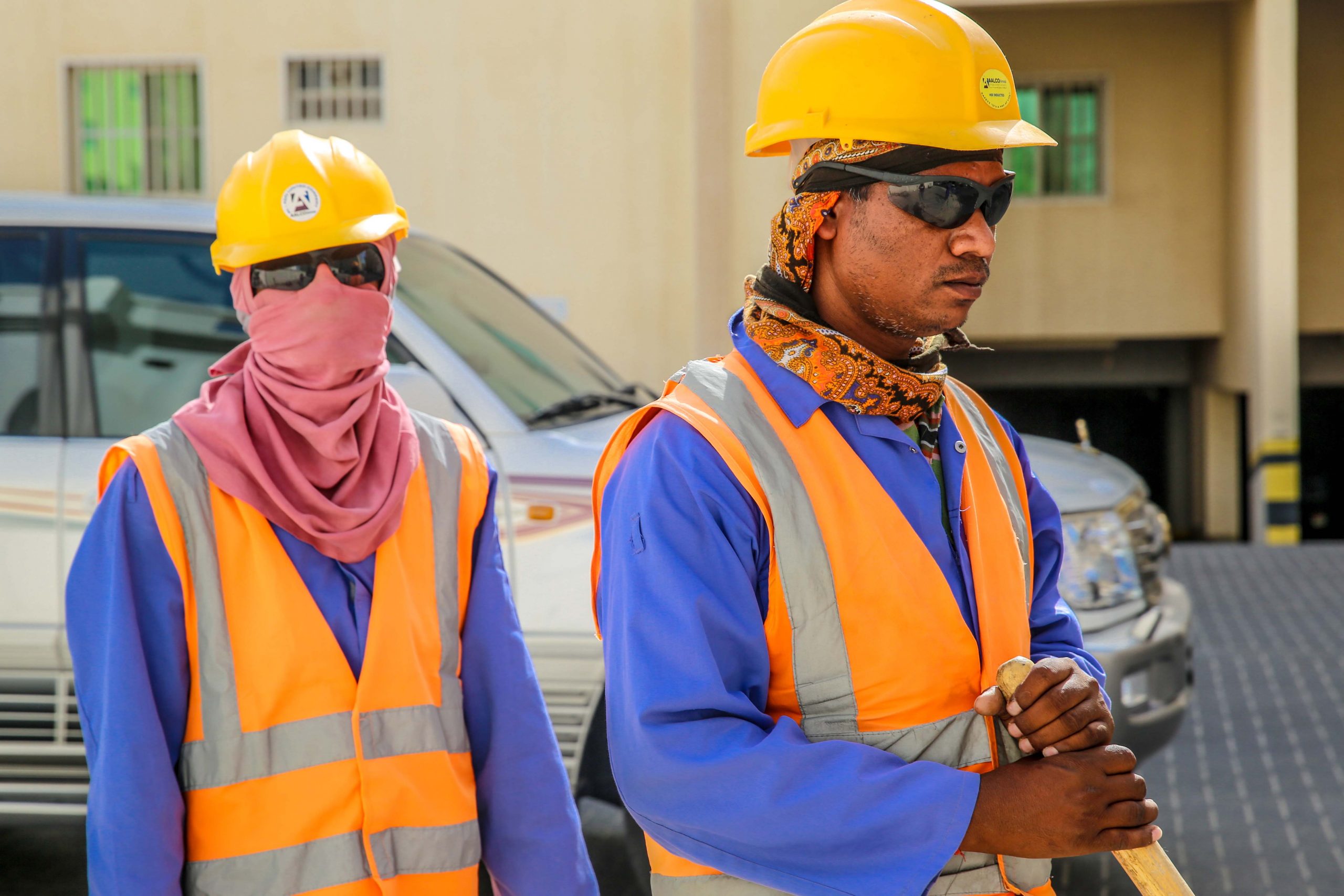
Qatar’s government has issued a public rebuttal against claims that thousands of workers have died and would continue to be killed while building World Cup sites, a charge that was widely circulated on social media last week.
Such allegations are “completely untrue” and have caused “enormous damage” to Qatar’s image and reputation, the Government Communications Office said in a statement last night on QNA – six days after a story about the deaths was published on the Washington Post’s website.

In its article, “The human toll of FIFA’s corruption,” the Post asserted that some 1,200 construction workers in Qatar have died since 2010.
It also predicted that the number could reach 4,000 deaths by 2022, citing the International Trade Union Confederation’s hypothesis as one of the sources for these figures.
Accompanying the article was an infographic that claimed to compare the number of deaths of workers in Qatar to those in other countries that have recently hosted the World Cup.
The illustration showed that Qatar had many times more deaths than any other country.
While the article itself pointed out that Qatar’s figures are estimates for all expat deaths here since 2010, regardless of the cause of death, this caveat was not mentioned in the infographic, which quickly went viral and was picked up by news organizations globally.
‘No deaths’
In its statement, Qatar’s government office said such allegations were “completely untrue.”
“In fact, after almost five million work-hours on World Cup construction sites, not a single worker’s life has been lost. Not one,” it said.
It claimed that the Washington Post reached its figure by using data on annual mortality rates for Indian and Nepali nationals living in Qatar and multiplied this by the number of years until the World Cup, without accounting for deaths that did not occur on construction sites.

“It is unfortunate that any worker should die overseas, but it is wrong to distort statistics to suggest, as the Post’s article did, that all deaths in such a large population are the result of workplace conditions,” the statement continued.
The Washington Post was contacted by Qatar authorities after its article appeared on May 27, and asked for a retraction and correction.
However as the story was online and not in the printed newspaper, this appeal was rejected, the statement adds.
“As a result of the Post’s online article, readers around the world have now been led to believe that thousands of migrant workers in Qatar have perished, or will perish, building the facilities for World Cup 2022 – a claim that has absolutely no basis in fact.”
Part of the confusion in reporting may stem from the fact that Qatar’s population is comprised mainly of expats – nearly 90 percent.
And though no migrants have died during construction of the five of the eight stadiums that have been announced as future World Cup venues here, this may not be the case for other projects.
Rights groups argue that the upcoming Doha Metro, multiple road projects and Lusail City may not be directly considered World Cup sites, but are related to Qatar’s hosting of the global event, and thus the welfare of workers on these projects should also be under scrutiny.

However, some officials deny there is a problem with worker treatment here. This week, a senior Supreme Council of Health official said that a new strategy aimed at improving conditions for laborers is now in the works.
In a public address, SCH’s director of public health Sheikh Mohamed bin Hamad bin Jassim al-Thani added that most of the deaths among laborers in Qatar were the result of heart attacks that occurred outside the workplace.
The majority of foreign workers are from areas of high altitude which lacks oxygen and so they could be more susceptible to heart attacks, he said, as reported by QNA.
End kafala
Qatar has come under enormous pressure from human rights groups and media internationally to reform its kafala sponsorship system, which prevents a worker from leaving the country or switching employers without their sponsor’s permission.
Although authorities announced last May that they would reform the system, no firm timeline has been set for when any changes will come into effect.
Earlier this week, Nepal added its voice to the chorus of demands for change:
“From the human rights point of view of the workers, I think the kafala system should be abolished … workers should be allowed to return or change their jobs if they want to,” Labor Minister Tek Bahadur Gurung reportedly told Thomson Reuters Foundation.
Gurung was quoted by The Guardian last month as saying that his country’s embassy in Qatar has been “inundated” with requests for help from expats who wanted to return home after the earthquake last month, but were denied exit by their employers.

However, a week after the comments were published, Gurung’s ministry backtracked, saying: “The content of the news report does not reflect the spirit of the Minister of State, who had just appealed, in a good faith, all employers of Qatar to facilitate the return of the Nepali workers to join their family members in the country who have been victims of the recent earthquake.”
In addition to human rights concerns, Qatar has had to fend off corruption allegations related to the World Cup.
In fact, the country’s response to the Washington Post report came just hours before FIFA President Sepp Blatter abruptly submitted his resignation last night.
The football chief’s imminent exit has raised questions about the fate of Qatar’s right to host the 2022 tournament, as investigations into the awarding of the bids continues.
Thoughts?







